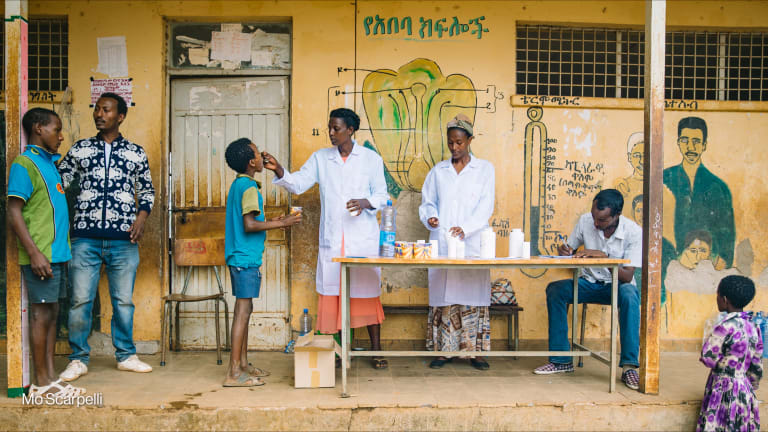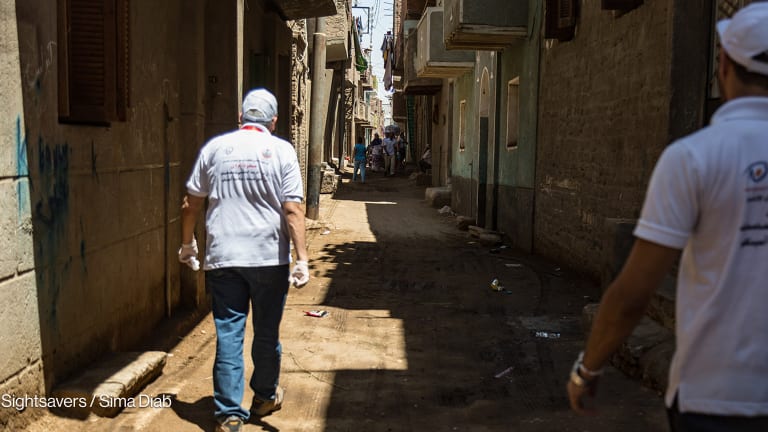Opinion: How public-private partnerships are combatting NTDs

Neglected tropical diseases are a group of parasitic and bacterial infectious diseases that affect roughly 1.58 billion people worldwide, including an estimated 875 million children. More than 600 million of Africa’s 1.1 billion people are at risk of NTDs. With impact numbers like these, unless and until we eliminate NTDs, we cannot say that we have achieved universal access to health.
Thanks to an innovative public-private partnership, we’ve seen remarkable progress against NTDs. In an unprecedented move, 13 of the largest pharmaceutical companies have pulled together under the auspices of the CEO Roundtable and are executing the largest drug donation in history. These companies have committed to donate enough drugs to completely eliminate 10 of the highest impact NTDs. Thus far, these companies have contributed more than $17.8 billion in donations.
In a critical move to maximize the impact of this historic drug donation, last year the World Health Organization launched the Expanded Special Project for Elimination of Neglected Tropical Diseases, or ESPEN, a five-year project designed to help all countries on the continent reach their elimination goals by 2030. ESPEN will ensure that all countries are in a position to receive and effectively distribute millions of donated drugs.
ESPEN is working directly with country leadership in order to build the capacity of countries to mount massive scale up of mass drug administration campaigns, and ESPEN will ensure that the donated drugs reach the most vulnerable and hardest to reach of our fellow Africans.
Country leadership is essential to eliminate any disease. ESPEN draws together the community needed to mobilize the necessary political will and the technical, innovative, pharmaceutical, and financial resources to end the scourge of NTDs amenable to preventive chemotherapy (PC-NTDs) for the people of Africa.
The project is just one year in and we have already seen encouraging results. Thus far, about 30 million people have been reached through direct operational support to mass drug administration in 15 countries. Togo has successfully eliminated lymphatic filariasis, or elephantiasis, as a public health problem. Togo is the leading edge of the sword. Across Africa, we are seeing broad-based endemic country leadership against NTDs. I am thrilled to note that at the next African Union Heads of State Summit in January, African heads of state will be reviewing for the first time an indicator on progress against NTDs in their countries.
Celebrating its own successful NTD story, Japan was able to eliminate lymphatic filariasis from its borders in the 1970s, positioning it to become an instrumental figure in the global fight against NTDs. It was, in fact, a Japanese researcher and Nobel Prize laureate, Satoshi Ōmura, who made a transformative difference in the fight against LF by discovering Ivermectin, a drug that has been able to treat LF and onchocerciasis, or river blindness, patients globally.
Subsequently Eisai, a Tokyo-based Japanese pharmaceutical company, has been leading the way in donating drugs and in developing new groundbreaking treatments for NTDs. As of now, Eisai has committed to donating 2.2 billion tablets to this fight against LF.
In Ethiopia, there is an old proverb that says: "When spider webs unite, they can tie up a lion." In the fight against NTDs, we are reaping the fruits of unusual public-private partnerships: Big Pharma has joined with endemic country leadership, who are supported by technical leadership from ESPEN — and together they are making massive impact for the most vulnerable among us. We have united and are well on our way to tying up this NTD lion once and for all, bringing us closer to the goal of an NTD free world.
Search for articles
Most Read
- 1
- 2
- 3
- 4
- 5








